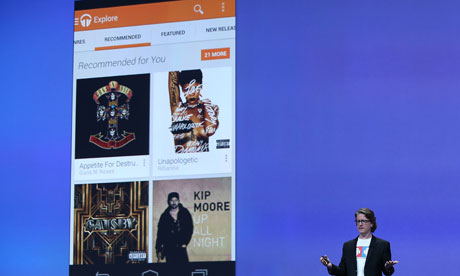iRadio, Apple’s music streaming service, is up there with the iTV in the Apple rumours that are famously yet to happened. It seemed almost certain that iRadio was on the brink of release, but then we heard licensing problems were holding up the process. Then Google I/O happened, with Google unveiling their All Access music streaming service, beating Apple to the finish line, but how did they manage to overcome the issues Apple were facing?
It’s not the first time Google have beat Apple to releasing a similar service. Take a trip back to 2011 where Apple were rumoured to be releasing their cloud storage service, only for Google to pip them to it with Google Drive. A similar situation has occurred here again, with Google showing they have the pace to outperform their competitor.
A Music Streaming Service battle
Apple was initially rumoured to be on schedule for release of iRadio for this summer, with an offering of 6 cents per 100 songs streamed, which is approximately half of what the likes of Pandora are paying. This was met with resistance from the record labels, and to push iRadio along, it is suspected Apple has doubled that offering to 12 cents per 100 songs streamed. But why did Google not experience the same issue?
The answer is that Google is not trying to operate the same model as Apple. Google beat Apple by pursuing an already established framework. All Access is a standard subscription based music service, similar to those already built by Spotify and Rdio, which means the terms and agreements were pretty much all in place – Google just needed to agree their spin on it. Whereas Apple was trying to create something new with a hybrid type radio web service, similar to that of Pandora, with some clever on-demand Apple features to integrate with iCloud. Consequently, the agreements had to be negotiated from scratch, and that’s where Apple’s iRadio got stuck.
Google had also put in place further incentives for the record labels, paying advances to the major copyright holders, reducing their profit margin but sweetening the deal. Apple on the other hand refused such an approach, leading to Google successfully launching their music streaming service first.
Th e issue has always been record label buy-in, and it seems Apple hasn’t quite yet figured out how to play nice with the people who own the content they want to distribute. iRadio may just be a rumour at the moment, but it might stay a rumour for the foreseeable future.



